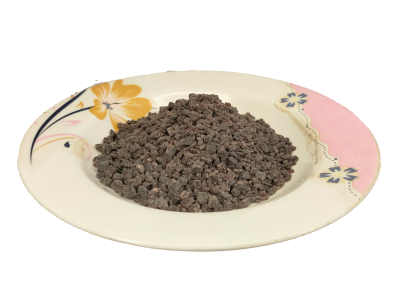Salt is a vital component in our daily lives. While edible salt is commonly associated with cooking and food preservation, non-edible salt plays an equally significant role across various industries. This article delves into the types, uses, and importance of non-edible salt, shedding light on its wide-ranging applications.
non-edible salt is a vital resource with diverse applications across industries. From de-icing roads to improving agricultural productivity, its uses are indispensable.
Types of Non-Edible Salt
Non-edible salt is typically used for industrial and commercial purposes. Here are some of the most commonly used types:
Rock Salt
Rock salt, also known as halite, is a naturally occurring form of sodium chloride. It is primarily mined from underground salt deposits and is used extensively in industries.
Epsom Salt
Epsom salt, or magnesium sulfate, is widely known for its therapeutic properties. It is commonly used in agriculture and personal care products.
Industrial Salt
Industrial salt is processed to meet specific requirements for industrial applications, such as manufacturing chemicals, de-icing roads, and water treatment.
Black Salt
Black salt, also known as kala namak, is rich in minerals and used in specific industries for its unique chemical properties.
Potassium Chloride
This is another type of non-edible salt that finds use in agriculture, fertilizers, and certain chemical processes.
Key Uses of Non-Edible Salt
Non-edible salt is utilized in various sectors. Here are some of the most notable applications:
De-Icing and Snow Removal
One of the primary uses of rock salt is for de-icing roads, sidewalks, and driveways during winter. Salt lowers the freezing point of water, preventing ice formation and ensuring safer travel conditions.
Water Treatment
Non-edible salt is critical in water softening and treatment processes. It helps remove hardness from water by exchanging calcium and magnesium ions with sodium ions.
Agriculture
Non-edible salts like potassium chloride and magnesium sulfate are integral components of fertilizers. They supply essential nutrients to crops, improving soil fertility and crop yield.
Chemical Manufacturing
Non-edible salt is a raw material in the production of various chemicals, including chlorine, caustic soda, and soda ash. These chemicals are foundational to industries such as paper, textiles, and detergents.
Cleaning and Personal Care Products
Epsom salt and other non-edible salts are used in cleaning agents and personal care products. They serve as exfoliants, stabilizers, and odor neutralizers.
Food Preservation (Non-Edible Grade)
Industrial salt is sometimes used in food preservation processes, such as curing meats, but only when it’s not meant for direct consumption.
Oil and Gas Industry
Non-edible salt is employed in drilling fluids to stabilize boreholes and in processes like crude oil desalting.
Benefits of Using Non-Edible Salt
The versatility of non-edible salt offers numerous benefits, including:
Cost-Effective Solutions
Non-edible salt is relatively inexpensive and offers cost-effective solutions for de-icing, water treatment, and industrial applications.
Enhanced Efficiency
Using non-edible salt in industrial processes enhances efficiency, such as improving crop yields in agriculture or ensuring clean and soft water in households.
Environmental Benefits
When used appropriately, non-edible salt can have minimal environmental impact. For example, magnesium sulfate in agriculture is biodegradable and improves soil health.
Versatile Applications
Non-edible salts cater to a broad range of industries, making them indispensable in modern economies.
Environmental Concerns and Safety Measures
While non-edible salt is beneficial, improper use can have environmental repercussions. Below are some concerns and mitigation strategies:
Soil Salinity
Excessive use of salts like potassium chloride can lead to soil salinity, which affects plant growth. Using controlled amounts and proper irrigation practices can help mitigate this issue.
Note: non edible salt is a vital component in our daily lives. While edible salt is commonly associated with cooking and food preservation, non-edible salt plays an equally significant role.
Water Contamination
De-icing salts can wash into water bodies, increasing salinity levels and affecting aquatic life. Using alternative de-icing materials or controlled application methods can reduce this risk.
Corrosion
Non-edible salt used for de-icing can corrode infrastructure and vehicles. Anti-corrosion treatments and using less corrosive alternatives, like calcium magnesium acetate, can minimize damage.
Human Safety
Handling non-edible salt requires precautions. For instance, industrial workers should use protective gear to avoid skin irritation or respiratory issues.
Innovations in Non-Edible Salt Usage
Research and technological advancements are paving the way for more sustainable and efficient uses of non-edible salt. Some recent innovations include:
Eco-Friendly De-Icing Solutions
Scientists are developing de-icing salts with reduced environmental impact by combining rock salt with organic additives.
Improved Water Softening Techniques
Advanced water softening systems use non-edible salt more efficiently, reducing waste and improving sustainability.
Agricultural Enhancements
Innovative fertilizers incorporating non-edible salts are being designed to maximize nutrient delivery and minimize environmental harm.
Future of Non-Edible Salt
The demand for non-edible salt is expected to grow as industries expand and technologies advance. Here are some predicted trends:
Sustainable Practices
As environmental concerns grow, industries will likely adopt more sustainable practices in using non-edible salts.
Increased Demand in Developing Economies
Developing countries are projected to drive the demand for non-edible salt due to industrialization and agricultural growth.
Enhanced Research
Continuous research into the properties and applications of non-edible salt will lead to the discovery of new uses and benefits.
Conclusion
Non-edible salt is a vital resource with diverse applications across industries. From de-icing roads to improving agricultural productivity, its uses are indispensable. However, it is crucial to manage its usage responsibly to minimize environmental and safety concerns. With innovations and sustainable practices, the future of non-edible salt holds immense potential for further advancements and benefits.
